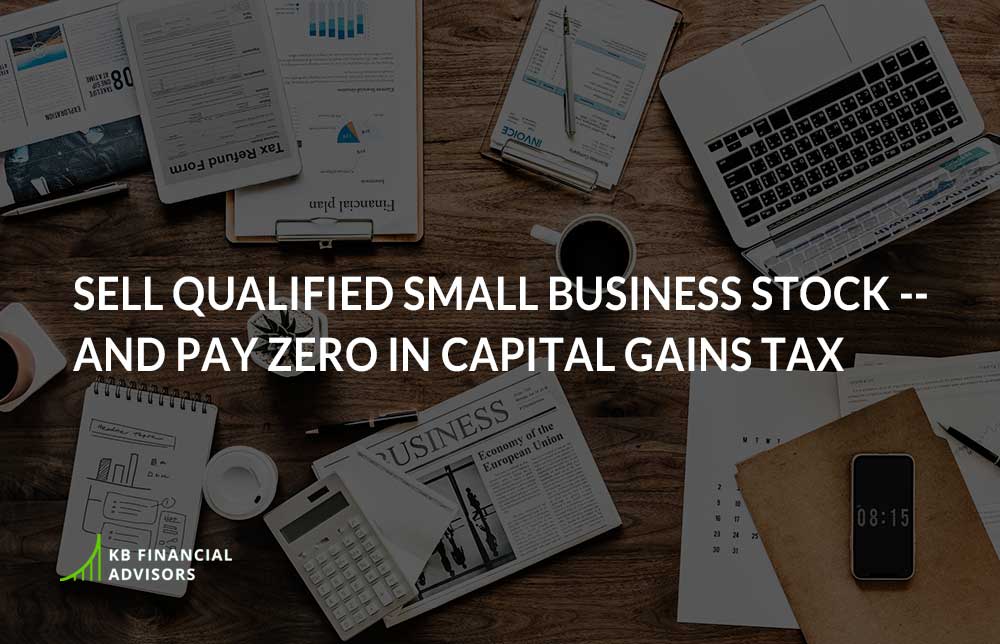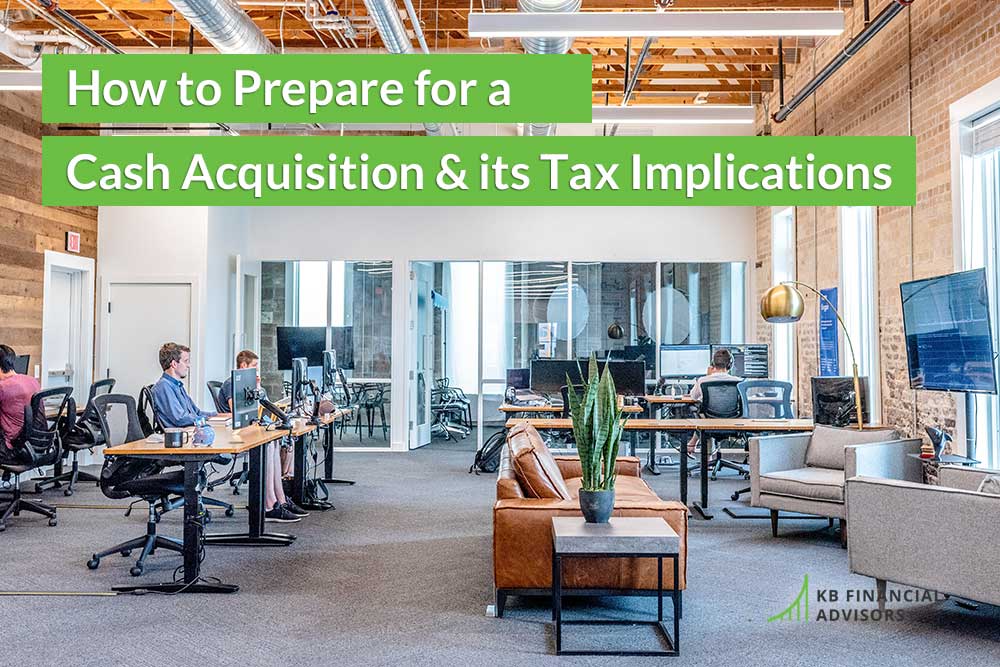What if I told you there was a way to pay zero dollars in capital gains tax if you sold qualified small business stock? It might sound crazy, but there’s a little-known provision in the Internal Revenue Code that you could potentially use to your advantage.
That provision is IRC Section 1202, and it allows some taxpayers to exclude all of your gain on the sale — and therefore, pay $0 in taxes.
Here’s how it works, what you need to know — and how to tell if you can leverage this provision to avoid capital gains tax.
Understanding IRC Section 1202
Under normal circumstances, taxpayers need to pay capital gains tax on the sale of your company’s stock. The long-term rate on those capital gains can range up to 23.8% in federal taxes.
That’s a significant number, and it may seem inevitable that you’ll need to part with that amount of the value you earned through the appreciation and sale of your stock. But there’s a little known provision within the IRS’ code, the IRC Section 1202 — and again, that could allow you to exclude all of your gain and pay no tax.
To make that exclusion, you would need to invest in qualified small business stock (QSBS) and hold the stock for 5 years prior to the sale date. If you do so, you may be eligible to pay zero capital gains tax.
Specifically, the provision only allows for a 100% tax exclusion for shares purchased on or after September 28, 2010. A partial exclusion may be available for stock purchased before that date.
The maximum gain eligible for exclusion on any one investment is the greater of $10 million, or 10 times your basis in the stock.
What Counts as a Qualified Small Business Stock?
Either a full or even a partial exclusion of capital gains tax can mean keeping a lot more money in your pocket. But there are a lot of restrictions around what type of stock qualifies for this tax treatment.
To be a QSBS, it must:
- Be issued by an active C-corporation in the United States. Stock from holding companies or S-corporations do not qualify for this exemption.
- Be issued by a C-corporation with assets of $50 million or less at the time of your purchase of shares or exercise of options.
- Be issued by a corporation in which at least 80% of the value of its assets are used in the active conduct of a qualified business. Some types of businesses are not eligible (such as banking, insurance, farming, hotel, motel, restaurant operations, service businesses in the fields of heath, accounting, law, engineering, architecture, actuarial science, consulting, financial services or brokerages). That means QSBS most often comes from companies in the manufacturing, retailing, technology, and wholesaling industries.
Additionally, you must have acquired your stock directly from the corporation and not in a secondary market.
If you plan to claim ownership (and subsequent sale) of QSBS so you can earn the exemption of capital gains tax on that stock, both the corporation that issued the stock and yourself will need to provide certain paperwork and documents to the IRS.
Other Qualifying Factors to Keep in Mind
If a corporation owns QSBS, it won’t qualify for the exemption offered by IRC Section 1202. Only individuals can hold and sell the stock to pay no taxes on that sale.
Stock acquired upon the exercise of employee stock options or shares acquired under restricted stock unit grants is also eligible for this tax break — as long as the 5 year holding period is met and the stock is qualified small business stock.
Unfortunately, the IRC Section 1202 does not apply to state income taxes in all states — or even in most states, including California. You may still owe state income taxes on the sale of shares even if federal capital gains are excluded.
Still, if you think you might qualify to get the tax benefit this provision offers, don’t hesitate to explore your situation in further detail. You should consult with a tax professional to help you evaluate the details and advise you on what you may want to file for (or what won’t work).
Where We See This Exemption in Effect Most Often
The most common way we see this is with founder’s shares or incentive stock options in early stage companies.
Most early stage investments in C corporation technology companies will qualify for this tax break offered by the IRC Section 1202. To be sure, you should check with the corporation that issued the stock to determine if they qualify for the tax benefit as of the date you purchased your shares.
When you do so, you’ll want to ask the corporation to certify that:
- It is a domestic C Corporation
- It had $50 million or less in assets immediately after your purchase
- At least 80% of the value of company assets are used in the active conduct of a qualifying business
Keep in mind that if a corporation redeemed its own stock within certain time frames before or after your stock purchase, your shares may be ineligible for the IRC Section 1202 benefit of exemptions on capital gains tax.
The IRC Section 1202 capital gains exclusion is another reason it is important to be organized. View and account for your shares by lot (individual shares purchased on different dates). For example, you may have exercised options to purchase shares of your employer stock.Your employer met all three qualifications for IRC Section 1202 at the time of exercise. Your employer is then acquired by another company in an all stock deal. You receive the shares of the acquiring company. Those new shares may still qualify for IRC Section 1202; do your homework and hire a professional.
Again, you should consult with a tax professional to help you analyze your situation and determine your eligibility as well as help you gather all the appropriate documentation you’ll need before you attempt to claim your exemption. As part of that process, you’ll likely need to check with the corporation that issued the stock, too.
If You Don’t Qualify for Capital Gains Tax Exemptions, You Might Use IRC Section 1202 in Other Ways
In addition to the tax free capital gain under IRC Section 1202, there is also a provision under IRC Section 1045 that you may be able to use to enjoy some tax breaks or savings within other areas of your investment portfolio.
Section 1045 allows you to rollover the gain from a sale of QSBS that you held for more than six months — if you invest in replacement qualified small business stock within 60 days of that sale.
If you want to invest in tech startups, understanding this rule in addition to the potential exemption you could earn via Section 1202 is well worth your time thanks to the tax savings you could net.
Not only that, but the Section 1202 exclusion can also be a tool to minimize the taxes on your own employee stock options. The 5 year holding period requirement on QSBS is yet another reason why you should consider exercising early.
That allows you to:
- Start the one-year holding period for long-term capital gains treatment, and
- Start the five-year holding period for Section 1202
You may be able to coordinate the benefits of IRC Section 1202 with an 83(b) election, depending on your situation. You should also consider exercising ISOs in accordance with the new alternative minimum tax rules.
The specific set of money moves to maximize your tax benefits and savings — and to avoid major tax bills — truly depends on your unique situation. There is no one right answer for everyone.
When dealing with complicated tax scenarios like this, it’s imperative you don’t try to just wing it or work through everything on your own. A tax professional with experience in this specific area can save you far more in tax mistakes than the fee they’ll charge for their assistance.






